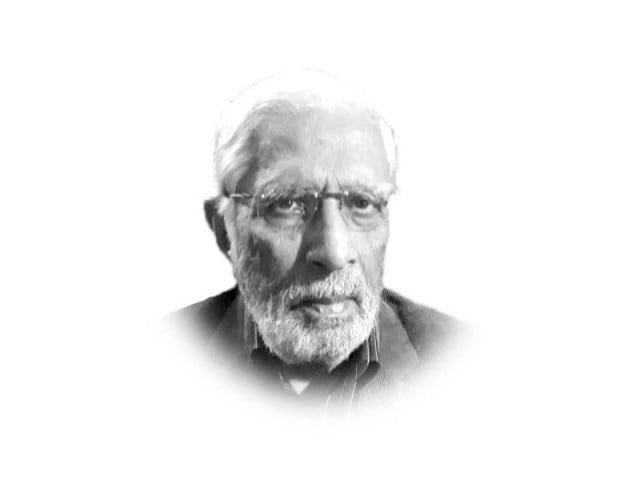Summit for Democracy
Democracy is said to be the worst form of government except all others that have been tried

A virtual Summit for Democracy is being convened by US President Joe Biden on Dec 9 and 10 to “galvanize democratic renewal worldwide”. It is to be followed by in-person summit next year after a “year of action”, which will include efforts to engage civil society and the private sector to keep the momentum going.
Democracy is said to be the worst form of government except all others that have been tried. Similarly market economy too is regarded as the worst form of economy except all others that have been tried. The combination of the two that worked in unison in many Western European countries and the US until about mid 1970s had given rise to welfare states. The welfare aspect was further strengthened when the combination was tempered by social market economy.
But in mid-1970s when Reaganomics of the US and the UK’s Thatcherism inspired by Milton Freidman’s free market economy invaded the democratic world, the welfare state was virtually guillotined. So much so that as a consequence the very political parties which had been safeguarding for decades the welfare element with great success in these societies were taken over by the big business virtually killing democracy itself.
Indeed, liberty and equality are attained when all persons alike share in the democratic government to the utmost and equality of opportunity is guaranteed. But democracies functioning in unison with free market economies sooner than later allow elite capture of the liberal régimes depriving the majority of its partaking in the government and denying it as well equality of opportunities.
That is perhaps why liberal democracies are in an existential fight against the forces of autocracy, despotism, and dictatorship around the world. Rising illiberalism, swelling autocracies, and increasingly muscular dictatorships are smothering democratising efforts on the ground and threatening the broader liberal order. The rise of Trump in the US, therefore, was no accident; it was the natural product of elite capture in the US.
The newly released Pandora Papers reveal in stark detail the critical role of major democracies, including the US, the UK, Canada, France, and Germany, in enabling dictators and autocrats by allowing illicit transnational flows of cash to flourish.
And indeed, after this year’s tumultuous transition of power, one cannot rule out the question whether the US even has the moral authority to sit at the head of the democratic table. But one view in Washington is that the US Capitol insurrection on Jan 6 and Trump’s efforts to delegitimise the election have made the need for such a summit all the greater.
But then since the summit is being officially projected as an attempt “to counterbalance the pull of authoritarian states such as China and Russia”, the actual purpose of the US for convening such a summit appears to be an attempt to further reinforce the impression that a sort of a cold war was in the offing between America and China.
However, on the face of it, China does not seem to be interested in any cold war. Its purpose in launching the BRI seems to be nothing more than a worldwide attempt to compress the supply chains between markets for common prosperity of all, developed and developing countries.
Also, China has so far shown no inclination to export its ideology anchored as it is in its governance system of one party rule, nor has it been flexing its military muscle by invading or threatening to invade near or far-off countries; neither does it seem to be interested in the game of regime change, a virtual past-time of the US over the last several decades since World War II.
Indeed, over the last 70 or so years, the US — the self-proclaimed champion of democracy driven until 1990 by the demands of the cold war and since goaded by the notion of being the world’s sole superpower — has been openly patronising monarchies and dictatorships of all kinds, including military, wherever it felt it necessary in its own global interests — in Africa, Latin America, the Middle East and Asia. In Pakistan as well it has favoured, in its own self-interest, military regimes rather than democratic dispensations.
Published in The Express Tribune, October 23rd, 2021.
Like Opinion & Editorial on Facebook, follow @ETOpEd on Twitter to receive all updates on all our daily pieces.
















COMMENTS
Comments are moderated and generally will be posted if they are on-topic and not abusive.
For more information, please see our Comments FAQ